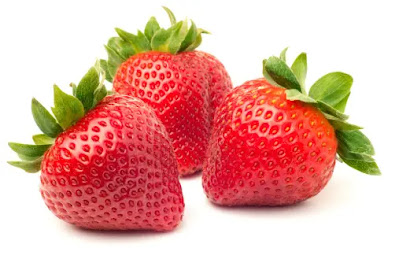Every body knows that proper intake of water is crucial for maintaining overall health and well-being. When you're properly hydrated, your body can function optimally. Let's explore the reasons and importance.
Regulates body temperature :
Water helps regulate your body temperature through sweating and respiration. It dissipates heat and keeps you cool during physical activity or in hot environments.
Aids digestion and nutrient absorption:
Water is essential for the digestion and absorption of nutrients in the digestive tract. It helps break down food and facilitates the passage of nutrients into the bloodstream.
Flushes out toxins:
Water acts as a natural detoxifier by flushing out waste products and toxins from the body through urine and sweat. It helps maintain proper kidney function and prevents the buildup of harmful substances.
Supports metabolism:
Proper hydration is important for metabolism, the process by which your body converts food into energy. Water is involved in many metabolic reactions, including the breakdown of carbohydrates and fats.
Maintains fluid balance:
Adequate hydration helps maintain the balance of fluids in your body. It prevents dehydration, which can lead to symptoms like fatigue, dizziness, and confusion.
Supports cardiovascular health:
Water is essential for maintaining blood volume and viscosity, which are important for cardiovascular health. Dehydration can strain the heart and lead to complications like high blood pressure and heart disease.
Promotes healthy skin:
Hydration is key for healthy, glowing skin. Water helps moisturize the skin from the inside out, keeping it soft, supple, and youthful-looking.
Overall, staying properly hydrated is essential for your body to function efficiently and effectively. It's important to drink water throughout the day, especially during and after physical activity, to replenish lost fluids and maintain optimal hydration levels
Who do not get sufficient fluid, what happened?
When someone doesn't get enough fluids, they can experience dehydration, which occurs when the body loses more fluid than it takes in. This can happen for various reasons, such as not drinking enough water, excessive sweating, vomiting, diarrhea, or certain medical conditions.
When dehydration sets in, the body struggles to function properly because it relies on fluids to carry out essential processes. Here's what happens:
Thirst:
Thirst is the body's way of signaling that it needs more fluids. When you're thirsty, it's a sign that you should drink water or other hydrating fluids.
Decreased urine output:
One of the earliest signs of dehydration is a decrease in urine output. Urine becomes darker in color and more concentrated as the body tries to conserve water.
Dry mouth and lips:
As dehydration progresses, you may experience dryness in the mouth and lips. Saliva production decreases, leading to dryness and discomfort.
Fatigue and weakness:
Dehydration can cause a drop in blood volume, leading to decreased oxygen delivery to the muscles and organs. This can result in fatigue, weakness, and decreased physical and mental performance.
Dizziness and lightheadedness:
A lack of fluids can cause a drop in blood pressure, leading to dizziness and lightheadedness, especially when standing up quickly.
Headache:
Dehydration can trigger headaches due to decreased blood flow and oxygen to the brain.
Confusion and irritability:
Severe dehydration can affect cognitive function, leading to confusion, irritability, and difficulty concentrating.
Rapid heartbeat and breathing:
In an effort to maintain blood pressure, the heart may beat faster, and breathing may become more rapid.
Sunken eyes and dry skin:
Dehydration can cause the eyes to appear sunken and the skin to become dry and less elastic.
Fainting:
In severe cases, dehydration can lead to fainting or even more serious complications such as heatstroke or kidney failure.
It's essential to prevent dehydration by drinking an adequate amount of fluids throughout the day, especially in hot weather or during physical activity. If someone is showing signs of dehydration, it's important to encourage them to drink water or seek medical attention if the symptoms are severe.
Foods to help your nutrition needs.
There are countless foods that can help meet your nutritional needs and provide hydration. Let's break it down:
Fruits and Vegetables:
These are rich in vitamins, minerals, fiber, and water content. Options like cucumbers, watermelon, oranges, and strawberries have high water content, aiding hydration.
Soups and Broths:
Consuming soups and broths made from vegetables, lean meats, or legumes can provide both hydration and essential nutrients.
Dairy Products:
Milk, yogurt, and cheese are not only good sources of calcium and protein but also contain water, contributing to overall hydration.
Hydrating Grains:
Foods like oatmeal, quinoa, and brown rice absorb water during cooking and provide sustained energy along with hydration.
Hydrating Proteins:
Lean meats, fish, tofu, and legumes contain water and essential amino acids necessary for muscle repair and overall health.
Smoothies and Juices:
Blending fruits and vegetables into smoothies or juicing them can provide a refreshing way to hydrate while also getting essential nutrients.
Hydration-rich Snacks:
Snacks like celery sticks, cucumber slices, and watermelon chunks are not only low in calories but also high in water content, aiding hydration.
Herbal Teas:
While not a food, herbal teas like chamomile, peppermint, or green tea can contribute to your daily fluid intake without added sugars or calories.
Remember to drink water regularly throughout the day, as it's essential for bodily functions, but incorporating these hydrating foods into your diet can complement your hydration efforts and contribute to overall health and well-being.



Comments
Post a Comment